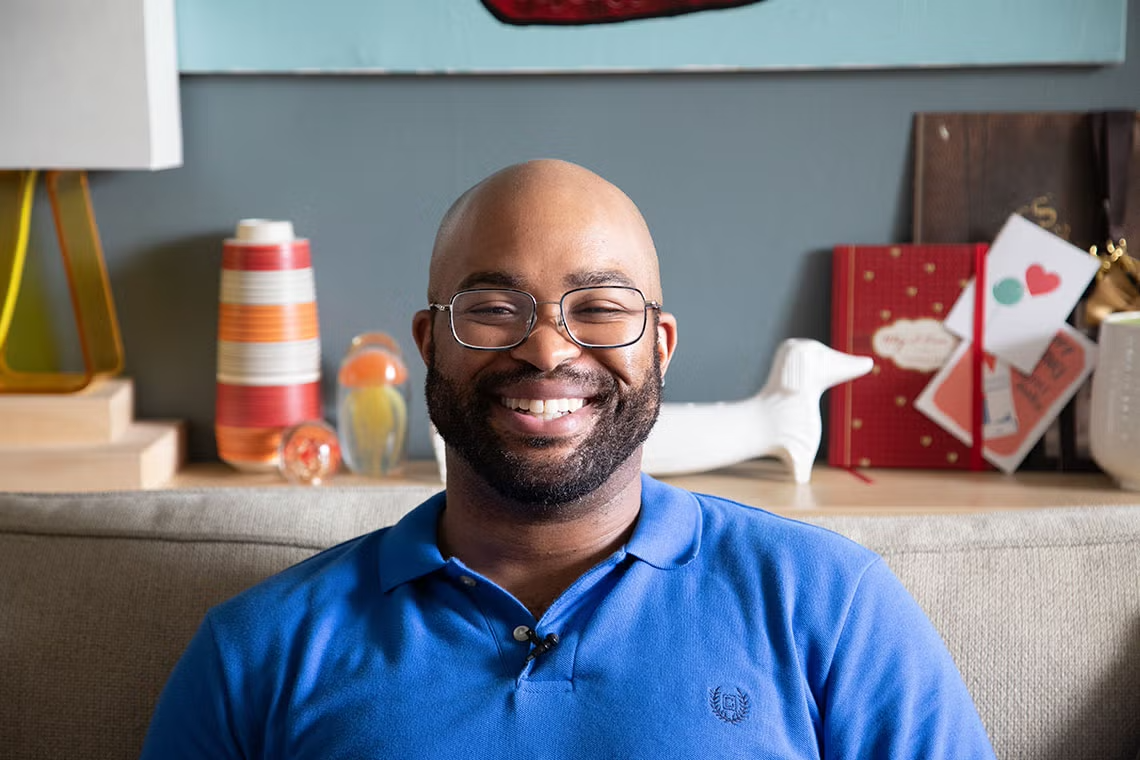Breaking Silences: A Caribbean LGBTQ People of Color Symposium.
Background:
First held in 2016, the Breaking Silences symposium brought together queer Caribbean activists, researchers, academics, and community leaders (as well as their allies) to engage in discussion and conversation related to immigration, mental health, HIV/AIDS, gender identity, faith, family acceptance, and other issues affecting the Caribbean LGBTQ+ diasporic communities.
Goals:
The goals of the one-day symposium were to network, organize, educate, build capacity and highlight the cultural diversities and colorful identities and/or expressions of the diasporic LGBTQ+ Caribbean community. As an intergenerational space, folks of any age were encouraged to attend, heal together from ancestral trauma and safely share their experiences of living without access to health care, mental health care, and legal status. Through powerful panel discussions, resources, and storytelling, Breaking Silences created an opportunity to empower community members suffering from mental health issues, family rejection, and living with HIV (which adds another layer of stigma and shame) to seek support, find community and celebrate progress.
Jason Jones—Keynote Speaker, International LGBTQ+ Human Rights Activist
Jason Jones is a LGBTQ+ human rights defender from Trinidad & Tobago whose activism work spans over three decades. Jones successfully challenged the constitutionality of Sections 13 and 16 of the Sexual Offenses Act[2] prohibiting consensual adult intercourse per anum and sexual acts between consenting same-sex adults, in the High Court of Trinidad and Tobago. In Jason’s own words: “It is quite clear how HUGELY important it is for my challenge to win, and to win RESOUNDINGLY! We must then use that success to forward progressive change in our neighbouring countries. My win in Trinidad and Tobago can be used as a strong catalyst to direct parliamentarians in these small island states to decriminalise through their Parliament, rather than the expensive and internationally damaging process of law.”
Panel 1
Queering Caribbean History, Immigration and Diaspora Politics
This panel will unpack the experiences, lived realities and narratives related to the politics of belonging in the Canadian diaspora. As queer Caribbean identities are negotiated through immigration, diasporic citizenship, kinship and a rootedness to “homelands”, the main objective of this discussion will be to explore what it means to be queerly Caribbean in diaspora. We will discuss how transoceanic/-national circulations, crossings and movements of LGBTQ+ gender and sexuality move geographically across borders, and inform our intersectional identities. As Stuart Hall (1990) discusses, cultural identity constitutes "who we really are", and "what we have become" and must be understood as a matter of becoming as well as being. In discussing where, we - queer, Caribbean diasporic communities - are now and are going, this conversation will explore the trajectories, lineages and histories of queer Caribbean identity, advocacy, activism, transgressions and resistance from homeland to diaspora. In the context of Canada, this conversation may draw upon the relationships between (neo)colonialism, heteronormativity, homonormativity, racism, white supremacy, anti-blackness, class, gender, ethnicity, etc. and unpack how these interconnected discourses, identity markers, powers and oppressions impact the lives of LGBTQ+ Caribbean-Canadian communities.
Themes & Concepts
Human rights for LGBTQ people in the Caribbean
Faith, acceptance and being "out" in the Caribbean
The politics of "pride" in the Caribbean and Canada
The removal and erasure of queer of colour bodies, spaces and representation in Canadian discourses of pride
Queer activism in the Caribbean
Queer, Caribbean organizing in diaspora
Transnational, queer Caribbean genders, sexualities
Diaspora politics and the desire to "belong"
Homonormativity and anti-blackness in queer Canada
LGBTQ+ Afro- and Indo-Caribbean tensions, and relationships in queer organizing
Histories of queer Caribbean activism in Toronto
Pride celebrations in the Caribbean
Trajectories of Queer Caribbean “Liberation”, “Freedom” and Acceptance
Moderators & Panelists
Dr. R. Cassandra Lord (she/her): Moderator
Assistant Professor of Sexuality Studies at the University of Toronto, Mississauga, specializing in Black diasporic Queer culture, Black/feminist theory, transnational feminism, and critical geographies of race, space and place.
Mohamed Q. Amin (he/they): Panelist
An Indo-Caribbean, Queer, Muslim immigrant, and LGBTQ+ rights activist. In 2015, he turned trauma into activism by founding the Caribbean Equality Project.
Dr. Beverly Bain (she/her): Panelist
Professor of Women and Gender Studies in the Department of Historical Studies at the University of Toronto Mississauga, with a focus in Caribbean and Black Queer feminist organizing and diasporic sexualities.
Maurice Tomlinson (he/him): Panelist
Jamaican attorney and senior policy analyst with the Canadian HIV/AIDS Legal Network. At the Legal Network, Maurice collaborates with local groups to challenge anti-LGBT laws and practices in the Caribbean.
Ryan Persadie (he/him): Panelist
An artist, educator, writer and co-organizer of Breaking Silences. His aesthetic and scholarly work investigates queer Caribbean diasporas
Panel 2
Mental Health, Stigma and Wellness in Transnational Caribbean Contexts
Discussions surrounding mental health, illness, stigma, HIV/AIDS, and madness are often censored, silenced and are regarded as “taboo” in many Caribbean communities and their diasporas. Yet, as Arthur et al. (2010) have attested, derogatory and ableist language such as “mad”, “sick”, “head nah good” commonly permeates daily life and has become embedded in Caribbean popular culture and vernacular mediums. Tropes and stereotypes such as these perpetuate a number of harmful, violent and problematic assumptions regarding issues of health and wellness and furthermore, are often conflated with queerness and LGBTQ+ identities. Who is deemed “mad” and/or “sick” and why? How do the intersections of religion, queer politics, and diasporas impact the lived realities for those struggling with mental health and/or HIV/AIDS? How is the “nation” complicit, both in the Caribbean and Canada, in the criminalization, victimization and oppression of those who are rendered “mad”, “sick”, “unwell” and queer? The objective of this community conversation is to bring forth Afro- and Indo-Caribbean perspectives together to unpack the racialized, gendered, classed and queered implications of health, stigma and wellness among diasporic Caribbean communities. Furthermore, we will discuss how we can forefront and unveil the shadow of silence over these controversial yet, salient issues affecting our communities. We would like to make our audience aware that conversation regarding rape culture, domestic abuse, violence against women and other triggering discussion points may come up during this conversation. We offer this trigger warning for the self-care of all of our panelists and audience members.
Themes & Concepts
Criminalization of HIV/AIDS in the Caribbean and its diasporas
HIV/AIDS Advocacy & Support in the Caribbean and Canada
Mental Health Advocacy in the Caribbean
Treatment of Mental Health
Mental Health and Stigma in Caribbean Pop Culture and Media
Violence against Women and Domestic Abuse
Rape Culture in the Caribbean
Indo-/Afro-Caribbean discourses surrounding health and wellness
Unpacking Madness in Caribbean contexts
Ableism and Disability in LGBTQ+ Caribbean Communities
Historicizing the HIV/AIDS crisis in the Caribbean
The Racialization of Madness and Mental Illness Stigma in the Caribbean and its diasporas
Blood Donation in Canada and the Caribbean Toronto community
Mental Health and Wellness among Caribbean Trans identities
HIV-Positive Rights in the Caribbean and Canada
Queer Health and Access to Resources
Moderators & Panelists
Savitri Persaud (she/her): Moderator
A PhD candidate in the department of Social and Political Thought at York University. Her doctoral dissertation examines discourses of mental health, madness, disablement, and violence in Guyana and Caribbean diasporas
Adam Benn (he/him): Panelist
A Black, Queer activist hailing from Toronto, Canada. Benn has had the privilege of working with youth in many communities across Toronto. Currently, he works as the Manager of LGBT2SQ Community Programs.
Dr. OmiSoore Dryden (she/her): Panelist
An interdisciplinary scholar examining the queerness of Blackness, symbolics of blood and the “social life” of blood donation.
Marcus Kissoon (he/him): Panelist
A dedicated advocate for gender and child justice. He has been a member of the Caribbean Equality Project (CEP) since its inception in 2015.
David Dk Soomarie (he/they): Panelist
A dedicated community advocate giving back to those living with HIV/AIDS. Soomarie has done extensive work with Community Action Resource (CARe), an organization which he credits for helping him cope with his HIV diagnosis.
Panel 3
Being Queerly Caribbean: The Politics of Queer Authenticity and ‘Coming Out’
Amidst great strides in the Caribbean to advocate for LGBTQ+ human rights, what does it mean to be queerly Caribbean in 2018? What does a queer Caribbeanness look like and how is it negotiated? How does it operate differently in Indo- and Afro-Caribbean contexts? How have queer Caribbean spaces and communities developed and formulated in diaspora? This community conversation will aim to bring Indo- and Afro-Caribbean perspectives, narratives, experiences, theorizations and communities together to answer some of these questions. The Caribbean region is often essentialized by the queer, Western mainstream as a homo-, queer-, and transphobic region, and as anthropologist David Murray (2002) suggests, is imagined and theorized as a heteronormative place, that provides no room or space for queerness to exist. Yet, in Canada and the US, the myth of queer “liberation” is heavily contested as issues of queer belonging, citizenship and “arrival” are driven by structural divides among racial, gender, ethnic, and classist differences. How do we negotiate our queer Caribbeanness in diaspora when the “gay international”, as coined by Massad (2002), or powers and institutions of cisgender white queerness become the central voice and representative of all LGBTQ+ communities? How do Caribbean queers negotiate their sexual and gender identities when queerness is defaulted as white? What about those who cannot come out? Are they no longer queer?
Themes & Concepts
Identify and disidentifying as “queer”
Lived realities of queer bodies in the Caribbean
Caribbean Pride celebrations
The Politics of Coming Out and Queer Authenticity
Homonationalism and Homonormativity
Queer of Colour Politics in Diaspora
Living in the “closet”, the “downlow” in the Caribbean and its diasporas
Intersections of faith and queerness
Queer Afro- and Indo-Caribbean Masculinities/Femininities
Coming Out as Trans
Transphobia in the Caribbean
Trans Rights and Advocacy in the Caribbean
Caribbean Lesbian identities
Gender Non-Conforming and Non-Binary Caribbean identities
Moderators & Panelists
Dr. Alissa Trotz (she/her): Moderator
An Associate Professor who has taught in the Department of Sociology and Equity Studies at OISE. Trotz also edits a weekly column, In the Diaspora, in a Guyanese daily The Stabroek News.
Detoxx Bustiae: Panelist
One of the only Jamaican Drag Entertainers currently living in New York City. Detoxx goes by the pronouns she/her when in drag and he/him when out of drag. Detoxx has been a drag entertainer for almost 10 years.
Dr. Wesley Crichlow: Panelist
Professor, Associate Dean of Equity, and Director for Engagement and Recruitment for Black Youth in Care, in the Faculty of Social Science and Humanities at the University Of Ontario Institute Of Technology.
Mark-Ché Devonish: Panelist
A queer, poly, Trinidadian man and founder of The Rude Collective—a queer arts collective based in Toronto, focused on curating work by marginalised artists of colour and creating hybrid art showcase/dance party events in unconventional venues in the city.
Lauren Pragg (they/them): Panelist
The child of Trinidadian born parents who immigrated to Toronto in the 1970s. Pragg has over 10 years of experience in graduate school studying Caribbean feminist thought, postcolonial theory, and sexuality.
Jordyn Samuels (she/her): Panelist
A University of Toronto graduate whose aim is to use intersectional frameworks to normalize equity and access for those with marginalized identities and work toward building safer spaces in schools, workplaces and communities.




























